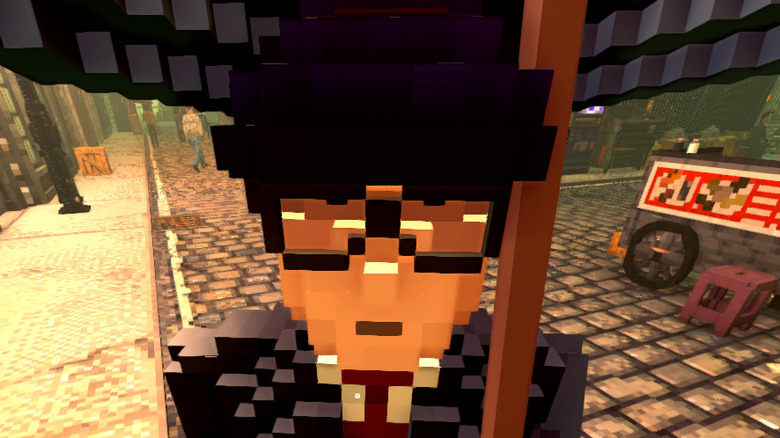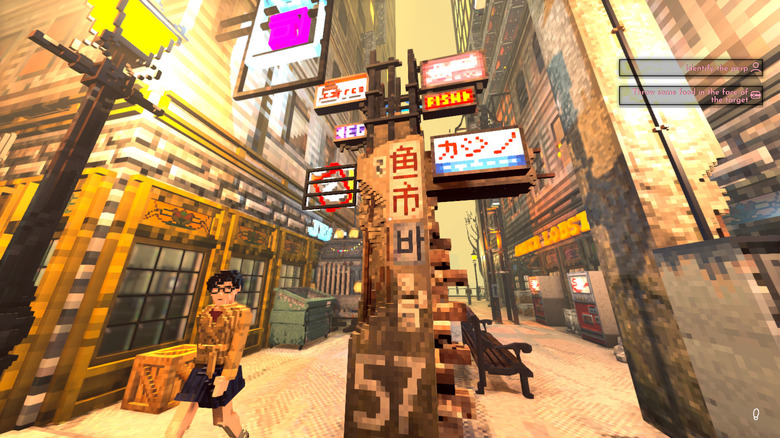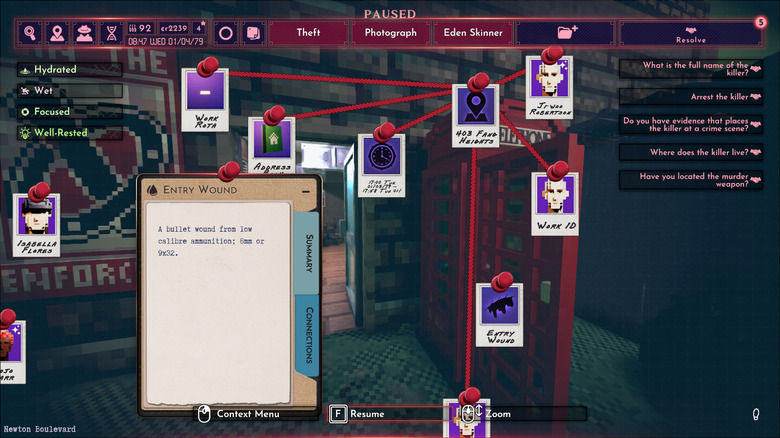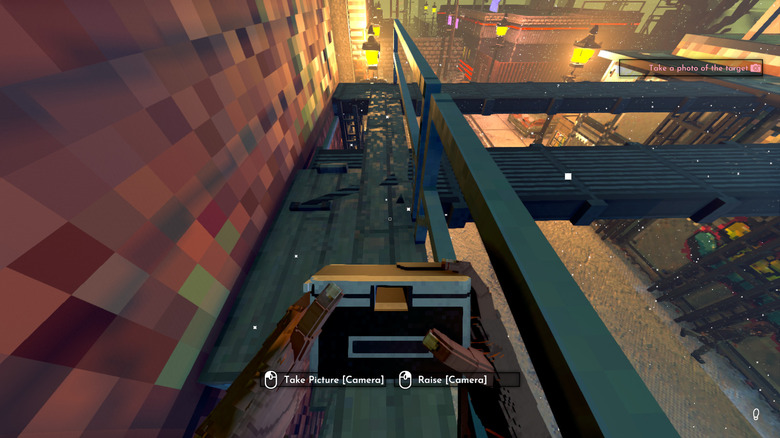Shadows Of Doubt Preview: Hours Of Procedurally Generated Fun
With dark and rainy streets, neon lights cast over industrial architecture, the world of "Shadows of Doubt" perfectly captures the eerie gloom of the dystopic everyday life; it's hard to believe this detailed neon-noir setting was made entirely by one person, but it's true. Indie dev Cole Jefferies has been hard at work on this project since 2018, where it first started out as a detective management sim more along the lines of his previous title, "Concrete Jungle." He soon pivoted into first-person investigative gameplay instead, using the power of procedural generation to create a game where nothing is off limits or uncoded visual buffer: Every room and space would be technically explorable and every NPC as named and fleshed out as another. The result? A detailed, sandbox detective-noir simulator with an entire city full of suspects, millions of locks to pick and security boxes to hack, and a "Bladerunner"-esque aesthetic to tie it all together. While it certainly isn't complete as of yet, "Shadows of Doubt" offers unique playthroughs with every new save file and hours of cyberpunk murder-mystery fun.
A solid gameplay loop
The main thing to say about "Shadows of Doubt" is that, despite its ambitious premise, it is everything it promises to be. Every single NPC in the game has a home, a workplace, and a full profile including things like height, age, build, fingerprint, and more. If you so chose, you could literally start investigating a random stranger on the street and find a full identity and routine every bit as detailed as those of the characters relevant to your cases. It's what really brings the investigative gameplay to life. Players are forced to adapt their approach to the specific routine or circumstances of their target, and every case has a myriad of different ways to be solved.
The procedural generation can sometimes result in strangeness — such as too many restaurants and nonsensical air vent layouts — but it rarely leaves the player in dead ends that can't be solved with more lockpicks and a little bit of thinking. There's even a good sense of player progression beyond just grinding money and lockpicks, where players can install or upgrade cybernetics called 'sync disks' that add special gimmicks or advantages. Not to mention, the game also provides an overall end goal: to collect enough Social Credit to escape the low-income neighborhoods altogether. Barring some technical issues, the puzzle-solving gameplay loop is overall solid, smooth, and downright addictive. Just don't look too closely at the East Asian language signs — they're not quite on the mark all the time.
Hardcore immersion
It might be strange to say this of a game with retro, voxel-style visuals, but the level of realism and immersion in "Shadows of Doubt" is intense. Everything is more true to reality than most games even attempt to get. The player character has needs such as hunger, thirst, and even personal hygiene; most people aren't willing to just hand over information when randomly approached on the street; breaking into someone's home is a hugely risky endeavor that can be tricky to pull off without getting caught; and you only have a four-slot inventory because that's how much anyone could reasonably fit in their coat pockets and hands without becoming very, very conspicuous.
Every single detail of the gameplay is so dedicated to simulating the experience of being a street detective — such having difficulty staying out on the streets in cold weather for more than a few minutes — that it can actually get quite difficult and bordering tedious to navigate at times. Of course, this all depends on a player's individual tolerance for immersion vs. convenience; in-depth immersion at this level might sound like a dream come true to many. However, the game could definitely benefit from a few more quality of life toggles so as to accommodate players who might not be so keen on role-playing the nitty-gritty details. As of right now, the only immersion feature that can be disabled is the long list of possible status effects.
Still a little rough around the edges
Overall, the game is still quite rough around the edges from a technical perspective. There are definitely many instances where it struggles to maintain a smooth framerate even when tested at the lowest settings on a PC above its listed minimum specs. The UI has a few bugs as well, with multiple visual elements getting stuck or broken after reloading or tabbing out and into the game from another window. In-game physics can get a little janky at times, with rare cases of bugs where the player character is sent hurtling out-of-bounds and to an impromptu death after doing something as innocuous as getting up from a chair or trying to tuck into a hiding spot. More often, quest items and rewards might appear just left of where they're supposed to be (and subsequently, require more work to get than intended).
However, "Shadows of Doubt" is a one-man project still in Early Access; minor technical issues are to be expected, and none of it is near enough to ruin the experience or permanently break a playthrough. Even in its unpolished state, the gameplay is compelling, the aesthetic is impeccable, and the areas with room to grow only makes it all the more exciting to see how the game will evolve with every update. For connoisseurs of neon-noir cyberpunk, investigative puzzle gameplay, immersive urban simulation, or all of the above, "Shadows of Doubt" is definitely an Early Access game well-worth keeping up with.
A PC code was provided to SVG for this preview. "Shadows of Doubt" is available now on PC via Steam Early Access.




